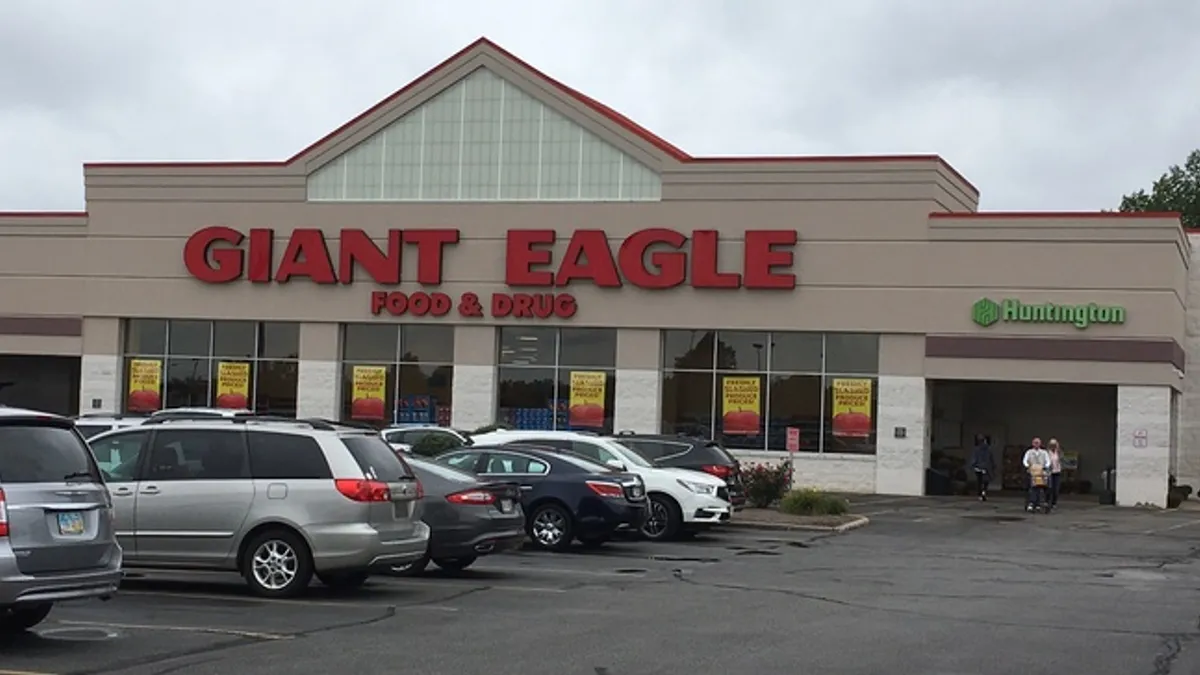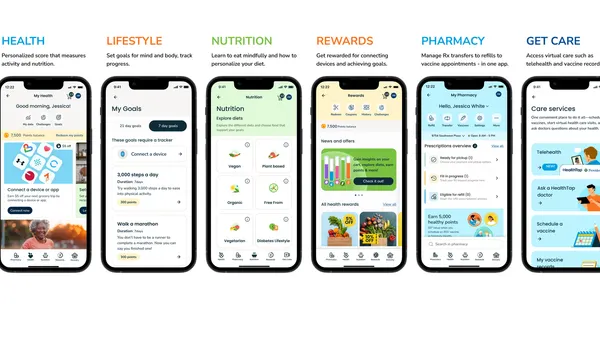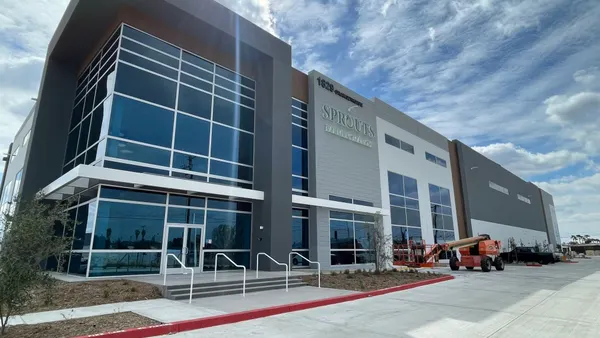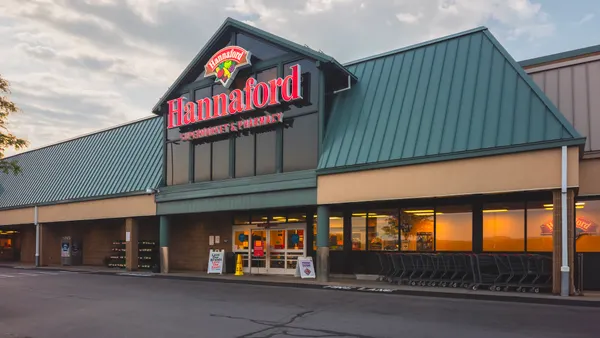Giant Eagle is relaunching its Nature’s Basket private brand with more transparency around sustainability.
The grocer announced Wednesday that it linked up with sustainable food rating company HowGood to evaluate the environmental and social impact of each item in the store brand line and to provide a comprehensive rating for each product.
“We think of ourselves as a leader in the retail market and sustainability, and one of the elements that we really think about when we're considering sustainability is transparency, specifically transparency around environmental and social issues and concerns because we know that those are areas that our consumers are thinking about,” Cara Mercil, director of sustainability and corporate social responsibility at Giant Eagle, said in an interview.
Giant Eagle’s efforts come at a time when the grocer says environmental, social and governance (ESG) claims are rising in the grocery industry.
The announcement cited a 2023 joint study from McKinsey & Company and NielsenIQ that found that products claiming ESG attributed grew 28% over a five-year period, compared to 20% growth for products that didn’t make those claims.
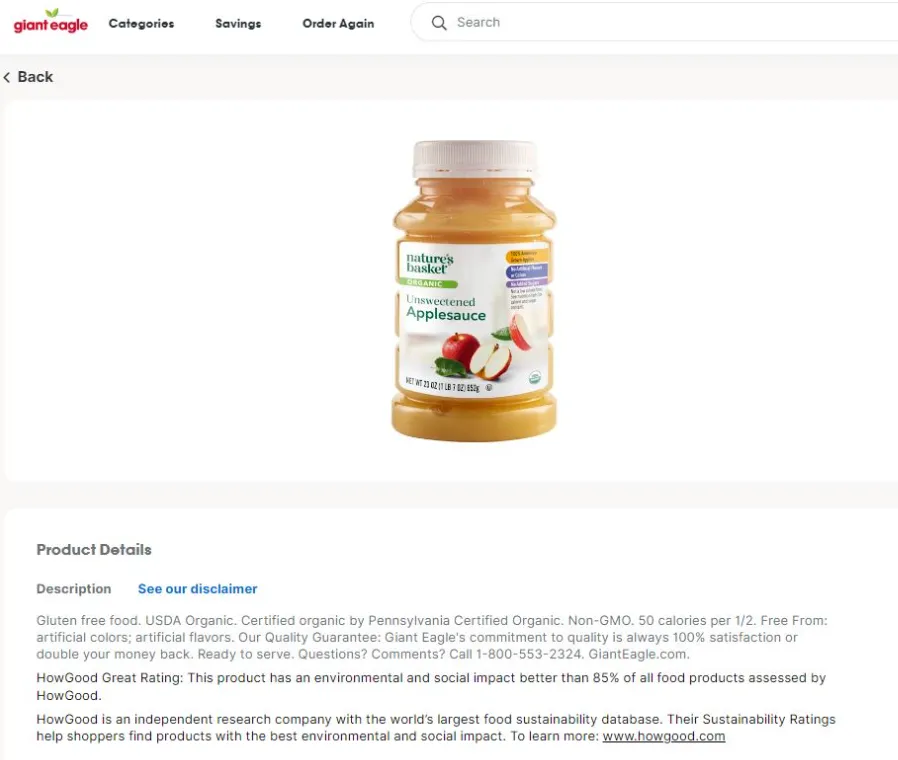
As one of six store brands by Giant Eagle, Nature's Basket focuses on offering “responsibly sourced, quality ingredients,” according to the grocer’s website.
Giant Eagle started the work on its Nature’s Basket line about a year ago and chose a third-party source to rate independently to support product objectivity, Mercil said.
The grocer first submitted all of the store brand’s product information to HowGood and then, once it received the initial ratings, worked on changing packaging, branding and ingredients, Mercil said. Going forward, new products will also get evaluated by HowGood, she added.
HowGood has been researching the food supply system for 17 years, amassing a database that maps 33,000 ingredients, chemicals and materials. HowGood CEO Alexander Gillett said in an interview the database is the largest ingredient database in the world.
HowGood calculates its product sustainability ratings using eight core impact metrics: greenhouse gas emissions, biodiversity, processing, water usage, labor risk, land use, soil health and animal welfare. Products with ratings of “Good,” “Great” and “Best” have an overall environmental and social sustainability impact that is better than more than 70%, 85% and 95%, respectively, of food products assessed by HowGood.
Customers can see the HowGood rating of items online under the “Product Details” on the product page for Nature’s Basket items. Giant Eagle also has in-store signage to spotlight the items that receive a rating of “Good” or better, Gillett said. Approximately 70% of Nature’s Basket items have received a Good, Great or Best rating, per the announcement.
Gillett noted that having 70% of Nature’s Basket items receive a “Good” or higher rating is “very impressive.”
HowGood’s rating system aims to aid shoppers looking for greener products, Gillett said.
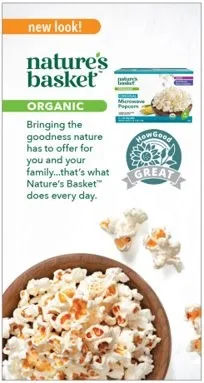
“If you think about like, in the egg section within a grocery store, you might have cage-free, free-roaming, Certified Humane, USDA Organic and if you asked any consumers to tell you the difference between those, they can't. ... The reality is that what you need is simplicity because people want to support the best practices,” Gillett said.
For grocers, HowGood’s platform aims to show the right data and information to employees based on their position within the company, Gillett said. “Someone in C-suite probably wants to see it as an ESG roll-up for their overall company. Someone in the sustainability team does want to see the metric tons of carbon. Someone in the reformulation team most likely doesn’t have significant training on climate [areas] so probably wants to see it on a simpler red to green scale,” Gillett said.
In addition to Giant Eagle, HowGood counts Ahold Delhaize, Nestlé, General Mills, as well as national and independent grocers, among its partners. Six of the 10 largest CPGs globally use HowGood to track their carbon and biodiversity impacts, Gillett said. Along with the rating system, HowGood also helps companies improve their packaging, he noted.
Giant Eagle is taking other sustainability measures. Mercil noted the grocer is working to develop product packaging that is more reusable, recyclable and biodegradable to support its waste reduction efforts. Giant Eagle is also working with How2Recycle, which labels products as whether or not they can be recycled and what steps consumers need to take to properly divert each item, Mercil said.
The How2Recycle is expanding that partnership beyond its Nature’s Basket line to incorporate all of its private brands, Mercil said.
“We're on a journey to make it easier for health-conscious customers to find food and information [and] resources that fit their lifestyle. And this was an opportunity for us to do that all in one place,” Mercil said about the HowGood tie-up.



